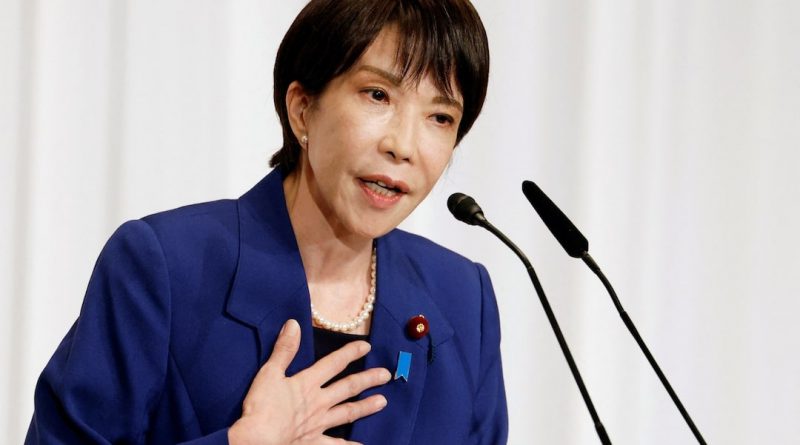Trump Urges Japan to Avoid Escalating China Dispute
Tokyo – U.S. President Donald Trump urged Japanese Prime Minister Sanae Takaichi to avoid further escalation with China during their recent discussion, according to sources familiar with the exchange, as Washington seeks to preserve a delicate trade truce with Beijing while maintaining stability in the region.
The conversation followed heightened tensions sparked by remarks Takaichi made earlier this month regarding the possibility of a Japanese military response should a hypothetical conflict over Taiwan directly threaten Japan’s security interests.
Takaichi’s comments triggered one of the most confrontational exchanges between Japan and China in years, prompting Beijing to issue sharp criticism and caution its citizens about travel to Japan.
The situation quickly evolved into a high-stakes diplomatic moment, raising concerns in economic and security circles across East Asia.
Japan later clarified that her statements were consistent with existing government policy, although the public nature of the remark drew renewed international attention.
During the call, Trump expressed that he did not want to see the situation worsen, according to government sources who described the conversation as sensitive.
He made no specific demands, nor did he request a retraction of Takaichi’s comments, but he signaled that restraint would help keep a fragile regional balance intact.
Japan’s chief spokesperson declined to elaborate on the diplomatic exchange, emphasizing the confidential nature of such communications between leaders.
The discussion between Trump and Takaichi followed a separate conversation between the U.S. president and China’s President Xi Jinping, who reportedly underscored Beijing’s position that Taiwan’s return to China remains central to its long-term vision of global order.
Taiwan, governed democratically, continues to reject China’s sovereignty claim, a consistent source of tension that influences regional security calculations.
Trump, who plans to visit Beijing in April, has publicly emphasized that U.S.-China relations are strong and that the two countries are close to concluding a broader trade agreement.
In a statement, Trump highlighted that strong relations between the world’s largest economies also benefit Japan, calling the country a close and trusted ally.
He pointed to recently concluded trade deals across Asia, asserting that global stability remains a priority.
His approach, however, has raised questions among some officials in Tokyo who fear Washington might temper its support for Taiwan as part of broader efforts to stabilize economic ties with Beijing.
Some Japanese lawmakers expressed concern that Trump’s limited public commentary on the dispute could be interpreted by Beijing as tacit approval to intensify pressure on Japan.
They stressed that clarity from the U.S. president would help reassure Tokyo at a time of growing militarization in the region, especially as Japan hosts the largest overseas concentration of U.S. military forces, including powerful naval and marine assets positioned to deter regional conflict.
China, meanwhile, has sharply increased its rhetoric, accusing Japan of provoking tension and warning against what it describes as efforts to revive militarism.
Chinese state media framed the situation within the historical context of World War Two, arguing that both China and the United States share a responsibility to uphold the post-war order and prevent escalatory actions.
China’s defense ministry also criticized Japan’s plans to deploy air defense missiles on its westernmost islands, warning that Tokyo would face severe consequences if it overstepped boundaries regarding Taiwan.
Japan has declined to confirm the specific content of the call between Trump and Takaichi but dismissed reports that the U.S. president advised the prime minister not to challenge China’s position on Taiwan’s sovereignty.
Officials suggested that while her remarks may not have been scripted, they now exist in the public domain, making a retraction difficult and further complicating efforts to defuse tensions that risk affecting economic cooperation and long-term diplomatic relations.
As the situation continues to evolve, policymakers in Japan are weighing how to maintain national security while avoiding steps that could exacerbate regional instability.
The challenge lies in managing diplomatic sensitivity, safeguarding economic interests and preserving alliances at a time when East Asia remains increasingly shaped by competing strategic ambitions and rapidly shifting geopolitical dynamics.



